第89章 Chapter 18(6)
For he was approaching the appointed limit of man's existence;and the poetic,which had been nourished in him by the natural life --which had once outstripped its developments,but on the whole remained subject to them --had therefore,also,passed through the successive phases of individual growth.He had been inspired as dramatic poet by the one avowed conviction that little else is worth study but the history of a soul;and outward act or circumstance had only entered into his creations as condition or incident of the given psychological state.His dramatic imagination had first,however unconsciously,sought its materials in himself;then gradually been projected into the world of men and women,which his widening knowledge laid open to him;it is scarcely necessary to say that its power was only fully revealed when it left the remote regions of poetical and metaphysical self-consciousness,to invoke the not less mysterious and far more searching utterance of the general human heart.It was a matter of course that in this expression of his dramatic genius,the intellectual and emotional should exhibit the varying relations which are developed by the natural life:that feeling should begin by doing the work of thought,as in 'Saul',and thought end by doing the work of feeling,as in 'Fifine at the Fair';and that the two should alternate or combine in proportioned intensity in such works of an intermediate period as 'Cleon','A Death in the Desert',the 'Epistle of Karshish',and 'James Lee's Wife';the sophistical ingenuities of 'Bishop Blougram',and 'Sludge';and the sad,appealing tenderness of 'Andrea del Sarto'and 'The Worst of It'.
It was also almost inevitable that so vigorous a genius should sometimes falsify calculations based on the normal life.
The long-continued force and freshness of Mr.Browning's general faculties was in itself a protest against them.We saw without surprise that during the decade which produced 'Prince Hohenstiel-Schwangau','Fifine at the Fair',and 'Red Cotton Nightcap Country',he could give us 'The Inn Album',with its expression of the higher sexual love unsurpassed,rarely equalled,in the whole range of his work:or those two unique creations of airy fancy and passionate symbolic romance,'Saint Martin's Summer',and 'Numpholeptos'.It was no ground for astonishment that the creative power in him should even ignore the usual period of decline,and defy,so far as is humanly possible,its natural laws of modification.But in the 'Dramatic Idyls'
he did more than proceed with unflagging powers on a long-trodden,distinctive course;he took a new departure.
Mr.Browning did not forsake the drama of motive when he imagined and worked out his new group of poems;he presented it in a no less subtle and complex form.But he gave it the added force of picturesque realization;and this by means of incidents both powerful in themselves,and especially suited for its development.
It was only in proportion to this higher suggestiveness that a startling situation ever seemed to him fit subject for poetry.
Where its interest and excitement exhausted themselves in the external facts,it became,he thought,the property of the chronicler,but supplied no material for the poet;and he often declined matter which had been offered him for dramatic treatment because it belonged to the more sensational category.
It is part of the vital quality of the 'Dramatic Idyls'that,in them,the act and the motive are not yet finally identified with each other.
We see the act still palpitating with the motive;the motive dimly striving to recognize or disclaim itself in the act.It is in this that the psychological poet stands more than ever strongly revealed.
Such at least is the case in 'Martin Relph',and the idealized Russian legend,'Ivan Ivanovitch'.The grotesque tragedy of 'Ned Bratts'has also its marked psychological aspects,but they are of a simpler and broader kind.
The new inspiration slowly subsided through the second series of 'Idyls',1880,and 'Jocoseria',1883.In 'Ferishtah's Fancies',1884,Mr.Browning returned to his original manner,though carrying into it something of the renewed vigour which had marked the intervening change.
The lyrics which alternate with its parables include some of the most tender,most impassioned,and most musical of his love-poems.
The moral and religious opinions conveyed in this later volume may be accepted without reserve as Mr.Browning's own,if we subtract from them the exaggerations of the figurative and dramatic form.
It is indeed easy to recognize in them the under currents of his whole real and imaginative life.They have also on one or two points an intrinsic value which will justify a later allusion.